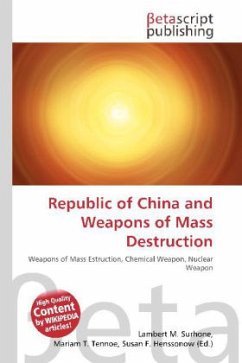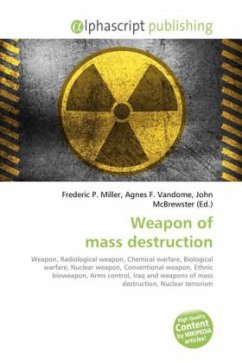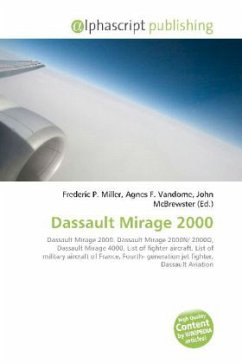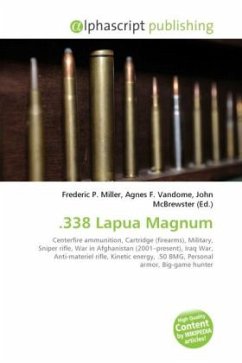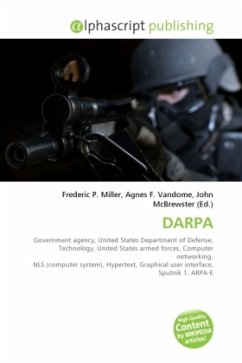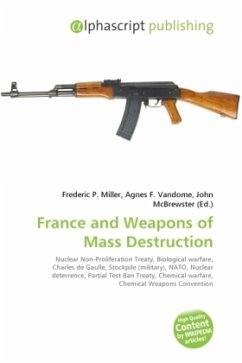
France and Weapons of Mass Destruction
Versandkostenfrei!
Versandfertig in 6-10 Tagen
32,99 €
inkl. MwSt.

PAYBACK Punkte
16 °P sammeln!
France is known to have an arsenal of weapons of mass destruction. France is one of the five "Nuclear Weapons States" under the Nuclear Non-Proliferation Treaty; but is not known to possess or develop any chemical or biological weapons. France was the fourth country to test an independently developed nuclear weapon in 1960, under the government of Charles de Gaulle. The French military is currently thought to retain a weapons stockpile of around 300 operational nuclear warheads, making it the third-largest in the world. The weapons are part of the national Force de frappe, developed in the lat...
France is known to have an arsenal of weapons of mass destruction. France is one of the five "Nuclear Weapons States" under the Nuclear Non-Proliferation Treaty; but is not known to possess or develop any chemical or biological weapons. France was the fourth country to test an independently developed nuclear weapon in 1960, under the government of Charles de Gaulle. The French military is currently thought to retain a weapons stockpile of around 300 operational nuclear warheads, making it the third-largest in the world. The weapons are part of the national Force de frappe, developed in the late 1950s and 1960s to give France the ability to distance itself from NATO while having a means of nuclear deterrence under sovereign control. France did not sign the Partial Test Ban Treaty, which gave it the option to conduct further nuclear tests until it signed and ratified the Comprehensive Test Ban Treaty in 1996 and 1998 respectively. France denies currently having chemical weapons, ratified the Chemical Weapons Convention (CWC) in 1995, and acceded to the Biological and Toxin Weapons Convention (BWC) in 1984. France had also ratified the Geneva Protocol in 1926.





